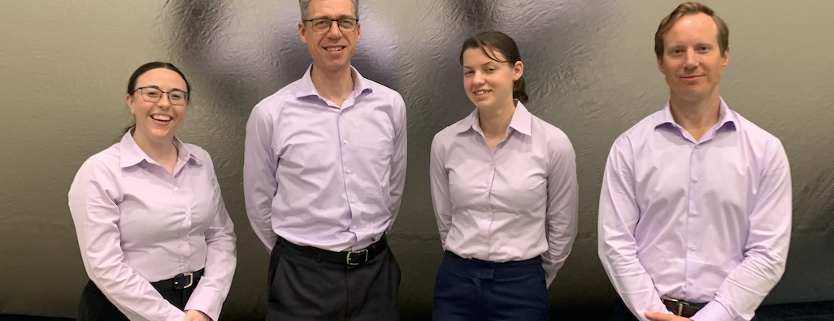High altitude technologies taking off in Queensland!
On Friday 22 July in a large exhibition hall in Brisbane, an innovative Queensland company, DanField Stratoship undertook a demonstration inflation of a stratospheric air ship.
The demonstration was organised by Trusted Autonomous Systems, a Defence Cooperative Research Centre in conjunction with the Royal Australian Air Force (RAAF) Air Warfare Centre (AWC), and as part of the groups involvement in the High-Altitude Pseudo Satellite (HAPS) Challenge.
The HAPS Challenge is exploring high altitude technologies including balloons that provide a range of lower-cost mechanisms to deploy payloads to areas of interest. Functions can include pseudo-satellite and persistent surveillance where reliable station-keeping and path-prediction functions are established. These technologies can provide lower cost, rapidly deployable capabilities for communications and surveillance tasks including bushfire early warning. HAPS Challenge management incorporates (Sir Lawrence Wackett Defence & Aerospace Centre – RMIT, SmartSat CRC, Trusted Autonomous Systems and RAAF Air Warfare Centre) supported by the Bureau of Meteorology.
The inflation demonstrates the technical status of the Stream 1 of the Challenge (Automated of Autonomous HAPS Platform Station Keeping & Constellation Maintenance) under the Power and Control in the Stratosphere (PACITS) project. This is currently in Phase 3, Prototype Development & Demonstration. PACITS is led by Danfield Stratoship and supported by a team The Stratoship Group including its sibling company Skysite, SuperSky Engineering, SmartSat Services and the Australian National University.
Ultimately, the conclusion on the Challenge will see a practical demonstration of the technology, deployed to the Stratosphere with regulatory approval processes underway.

Stratoship Group members at the remote pilot station.



